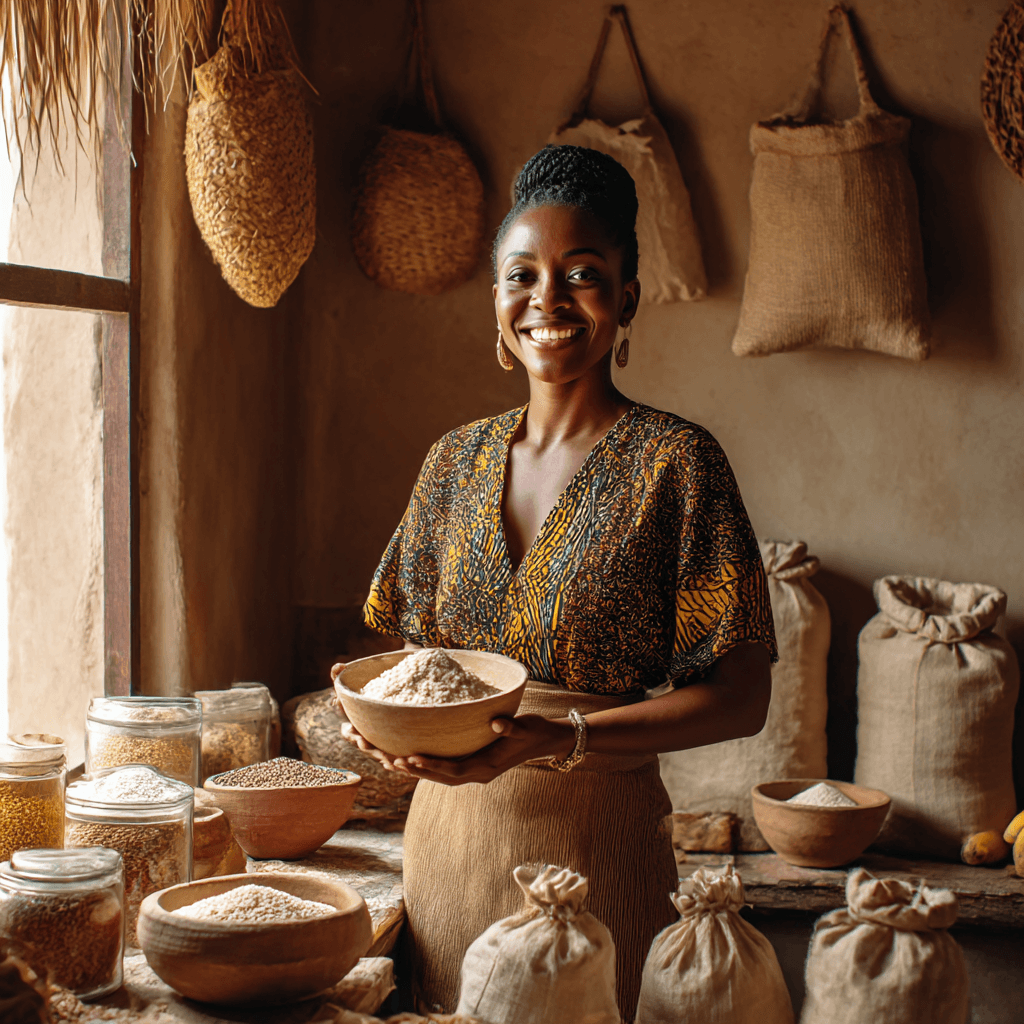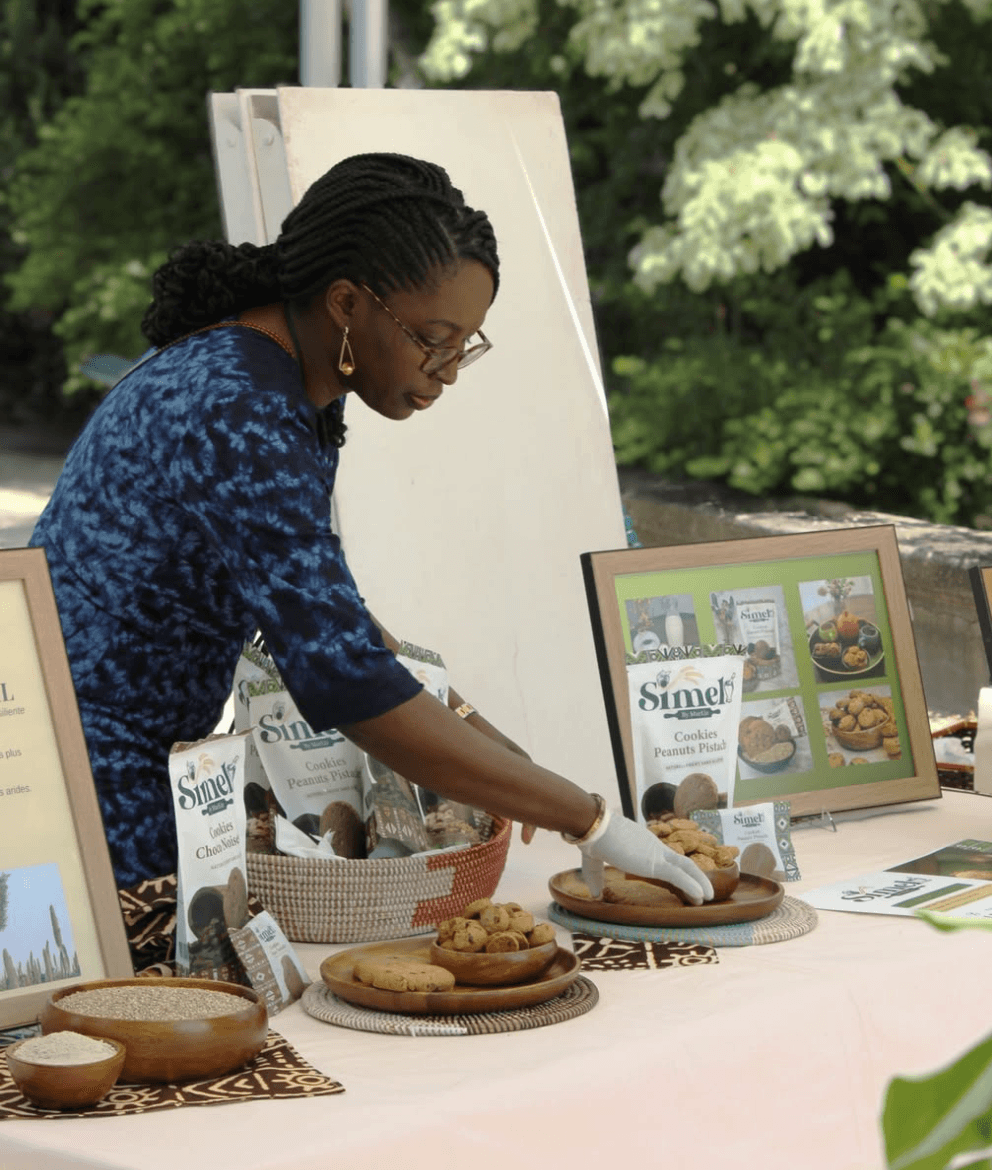
Gluten-free, 100% Afro
7 août 2025
Gluten-free & 100% African: our traditions nourish the future
For several years, gluten-free products have been taking up an increasing amount of shelf space in supermarkets, cafes, and on specialized e-commerce platforms. In response to intolerances, specific diets, or simply a concern for digestive well-being, demand is skyrocketing.
However, long before this trend became a market segment, several African cultures were already cooking without gluten. Cassava, fonio, millet, sorghum, plantains, yams: these are all naturally gluten-free ingredients at the heart of traditional African recipes for generations.
Today, these traditions offer a unique opportunity to reconcile culinary heritage and food innovation.
Gluten-free: between health needs and economic leverage
Gluten-free diets are not a passing trend. They respond to two realities:
An increasing number of people diagnosed as gluten intolerant or hypersensitive,
A growing willingness among consumers to better digest, diversify their cereal sources, and limit ultra-processed products.
The global market for gluten-free products is estimated to be over $8 billion, and its growth remains strong. In Europe as in North America, the demand is increasingly oriented towards authentic, traceable, and diverse products.
Gluten-free African ingredients: an unknown richness
Africa has a considerable comparative advantage that is still largely underappreciated:
Fonio: an ancient grain grown in West Africa, naturally gluten-free, rich in essential amino acids.
Yam: a tuber transformed into flour, fufu, gari, tapioca… Very digestible and versatile.
Millet & Sorghum: robust grains suited for dry climates, excellent for baking and porridge.
Plantain & yam: ideal alternatives to traditional starches in savory and sweet preparations.
These products are already at the heart of many everyday recipes: porridges, cakes, donuts, pancakes, artisanal breads, local pasta.
Women who turn potential into market
Within WINA – Women in AfroFood –, several members have seized the opportunity to position their products in the gluten-free niche, while staying true to their roots:
Marthe (Senegal and France) – founder of the brand SIMEL, a brand of cookies made from millet flour, rich in protein, fiber, antioxidants, and minerals.
Djémila (France and Benin) – founder of Safida’s Food, a brand designed as a culinary business at 360°, to promote the noble products of Africa and bridge cultures.
She sources flours and spices directly from local producers, creates committed recipes through Safida’s Secret, offers culinary workshops, and provides a tailor-made catering service, served right at the foot of the Eiffel Tower.
Ramata (France) – a committed entrepreneur, has made it her mission to promote Africa's agricultural wealth through RD Agrobiz, a company specializing in food processing and the export of natural products such as spices, cereals, and dried exotic fruits. Her bestseller: the DIOUKA!
They demonstrate that innovation does not come from elsewhere: it is already found in our lands, our practices, our know-how.
Towards a new gluten-free Afrofood sector
This positioning opens up numerous perspectives:
Creation of quality labels and nutritional certifications highlighting gluten-free African products,
Development of exportable ranges for organic retail or specialized restaurants,
Structuring cooperatives and logistical partnerships around these raw materials.
The goal is clear: to have African products recognized as credible references in the gluten-free segment, without renouncing their identity or overly standardizing them.
"Gluten-free, 100% Afro": a section dedicated to our committed members
WINA is now launching a special section “Gluten-Free, 100% Afro”, to highlight its active members in this initiative. This section aims to:
Highlight entrepreneurs who develop healthy, traceable, and gluten-free products,
Provide visibility to Afro brands that address contemporary public health challenges,
Create bridges between culinary tradition and new international markets.
👉 If you are a WINA member and are developing a gluten-free product made from Afro ingredients, contact us to be featured in this section.
Conclusion
Gluten-free should not be a constraint. It can become a vector of differentiation, a lever of food sovereignty, and an asset for Africa and its diaspora.
WINA is committed to supporting Afro-descendant women who choose to transform their heritage into a driver of economic, nutritional, and cultural impact.
Because innovating also means knowing how to draw from one’s roots.
Empowering Women. Elevating Afrofood.



